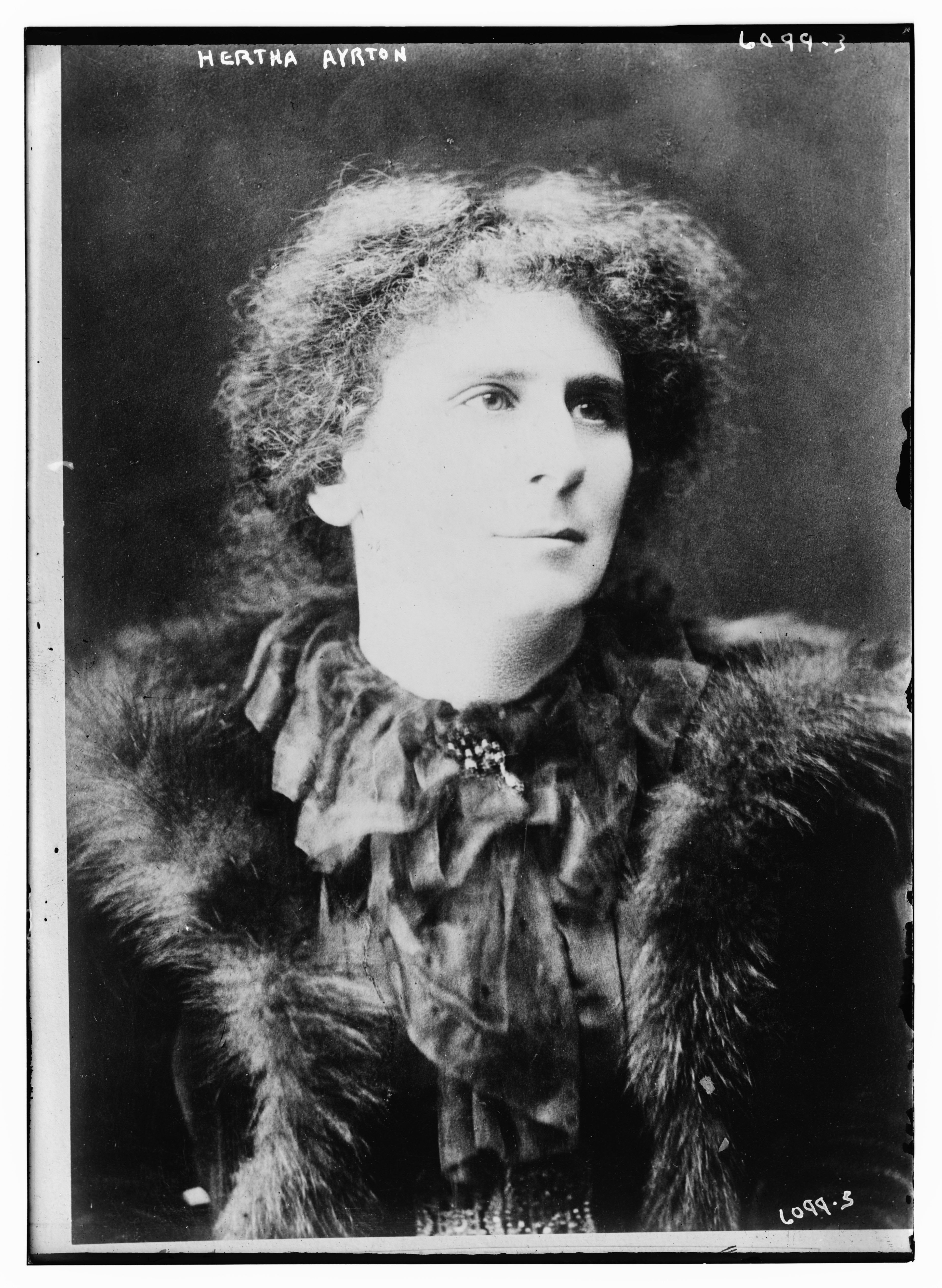
Hertha Ayrton
Definition
Hertha Ayrton was a British engineer and physicist who made significant contributions to the understanding of electricity and mechanics. She was born in 1854 in London, England, and studied mathematics and physics at Girton College, Cambridge. After graduating, she worked as a teacher and a research assistant.
In 1894, Ayrton married William Ayrton, a professor of electrochemistry at the Royal College of Science. Together, they worked on a number of projects, including the development of a new type of arc lamp. Ayrton also studied the behaviour of sparks and arcs, and she developed a method for measuring the electrical conductivity of gases.
In 1902, Ayrton was elected to the Royal Society of London, becoming the first woman to be elected to the Society in her own right. She was also awarded the Hughes Medal, one of the highest honours in physics.
Ayrton's work on electricity and mechanics had a major impact on the development of these fields. She was a pioneer in the field of electrical engineering, and her work on the behaviour of sparks and arcs helped to improve the efficiency of electrical devices. Ayrton was also a gifted mathematician and physicist, and her work on the conductivity of gases made significant contributions to the understanding of this phenomenon.
Ayrton was a role model for women in science, and she helped to break down the barriers that prevented women from pursuing careers in these fields. She was a brilliant scientist and an inspiration to many.
How can the word be used?
Hertha Ayrton is most known for her work on electric arcs and her invention of the mercury-arc rectifier.

Different forms of the word
There are no different forms of the word "Hertha Ayrton". It is the name of a British engineer, mathematician, and physicist. She was born Phoebe Sarah Marks in 1854 and died in 1923. She was the first woman to be elected a fellow of the Royal Society.
Etymology
Bain News Service, publisher, Public domain, via Wikimedia Commons.
Question
What is Hertha Ayrton famous for?
AQA Science Exam Question and Answer
Question:
Discuss the contributions of Hertha Ayrton to the field of science, particularly in the realm of fluid dynamics and her pioneering work on the electric arc, and explain how her achievements paved the way for greater gender inclusivity in scientific research.
Answer:
Hertha Ayrton was a trailblazing scientist whose work significantly impacted the field of science, particularly in fluid dynamics and electrical phenomena. Ayrton conducted groundbreaking research on the electric arc, a topic that had profound implications for lighting and electrical engineering. Her investigations into the behaviour of arcs under varying conditions led to improved electric lighting and the development of safer electrical systems.
Ayrton's studies on fluid dynamics, particularly the flow of air over solid surfaces, were instrumental in understanding drag forces and turbulence. Her insights have applications in fields ranging from aeronautics to environmental science.
Beyond her scientific achievements, Ayrton was a pioneer for gender inclusivity in science. In an era when women were often excluded from academic and professional circles, Ayrton's accomplishments paved the way for greater recognition of women's contributions to science. She was the first woman to read her own paper before the Royal Society, breaking gender barriers and inspiring generations of female scientists.
Hertha Ayrton's legacy is a testament to the power of scientific curiosity and determination. Her groundbreaking research and advocacy for gender equality continue to inspire scientists of all genders, emphasizing the importance of diversity in shaping the future of scientific exploration.